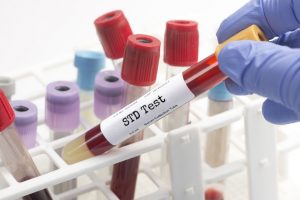Basic Sexual Health Panel: All you Need to Know About
Sexually transmitted disease (STD) means the disease that is transmitted from one person to another through sexual contact. Most STDs affect both men and women, but in many cases, the health problems they bring can be very difficult for women. STDs do not always cause symptoms or can only cause mild symptoms. So, it is possible to have an infection but not know it. Also, if there are symptoms, they may include an abnormal discharge from the vagina or anus, painful or normal urination, redness and itching in the vagina, anal itching, pain, or bleeding, abdominal pain, fever.
If you have sex, you should talk to your healthcare provider about your STD risk and whether you need a test. This is very important because most STDs do not usually cause symptoms.
CHLAMYDIA
Chlamydia is a common sexually transmitted disease (STD) caused by viruses. People with chlamydia often have no external symptoms in the early stages. Chlamydia can cause vaginal discharge. It can be like red or mucus. Sex without a condom and having unprotected oral sex are the main ways to become infected with chlamydia.
Symptoms in men
- a burning sensation during urination
- lower abdominal pain
- pain in the testicles
Symptoms in women
- painful sex
- vaginal discharge
- a burning sensation during urination
- lower abdominal pain
Test for chlamydia
The most effective diagnostic test for chlamydia is to swipe the vagina in women and test urine in men. Results may take 24 – 48 hours. The doctor’s office should call to discuss the results. If the test comes back positive, the next appointment and treatment options will be discussed.
GONORRHEA
Gonorrhea is passed from one person to another through oral, anal, or vaginal sex without a condom or any other form of contraception. The best protection against sexually transmitted infections is condom use. However, some people who get gonorrhea have never had any visible symptoms.
Symptoms in men
- high frequency or urgency urination
- red (or leaky) discharge from the penis (white, yellow, beige, or green)
- swelling or redness when the penis opens
- swelling or pain in the testicles
Symptoms in women
- vaginal discharge (liquid, creamy, or green)
- pain or burning sensation while urinating
- urge to urinate more often
- hard times or spots
- Sore throat
- pain during sex
Test for gonorrhea
Health professionals can diagnose gonorrhea in several ways. The Centres for Disease Control and Prevention recommends an annual test for gonorrhea for all sexually active women under the age of 25.
Both men and women should be tested for gonorrhea symptoms. If you are a woman, a sample can be taken from your cervix. Your healthcare provider will use a plastic or metal device called a speculum to open the vagina so that the cervix can be seen. If you are a man, doctors take swabs from the opening of your urethra. You can do some gonorrhea tests with a home STD test kit.
Conclusion
It does not mean that sex is the only way STDs are transmitted. If left untreated, sexually transmitted diseases (STDs), also referred to as STIs, can cause serious health problems. Do not assume that your doctor will automatically diagnose all your sexually transmitted infections during your annual physical or sexual examination. All pregnant women should get tested for HIV and hepatitis B. Many doctors do not regularly diagnose STDs.
It is important to ask your doctor for an STD test. Ask what tests they plan to take and why. This is because taking care of your sexual health is not something you are ashamed of. If you are worried about a particular disease or symptom, talk to your doctor about it. The more reliable you are, the better the treatment you will receive. These “hidden” STDs can still become a problem for people’s health. So, anyone who is sexually active should get tested. Once you order your test, you will receive an email confirming your test and your chosen clinic.



